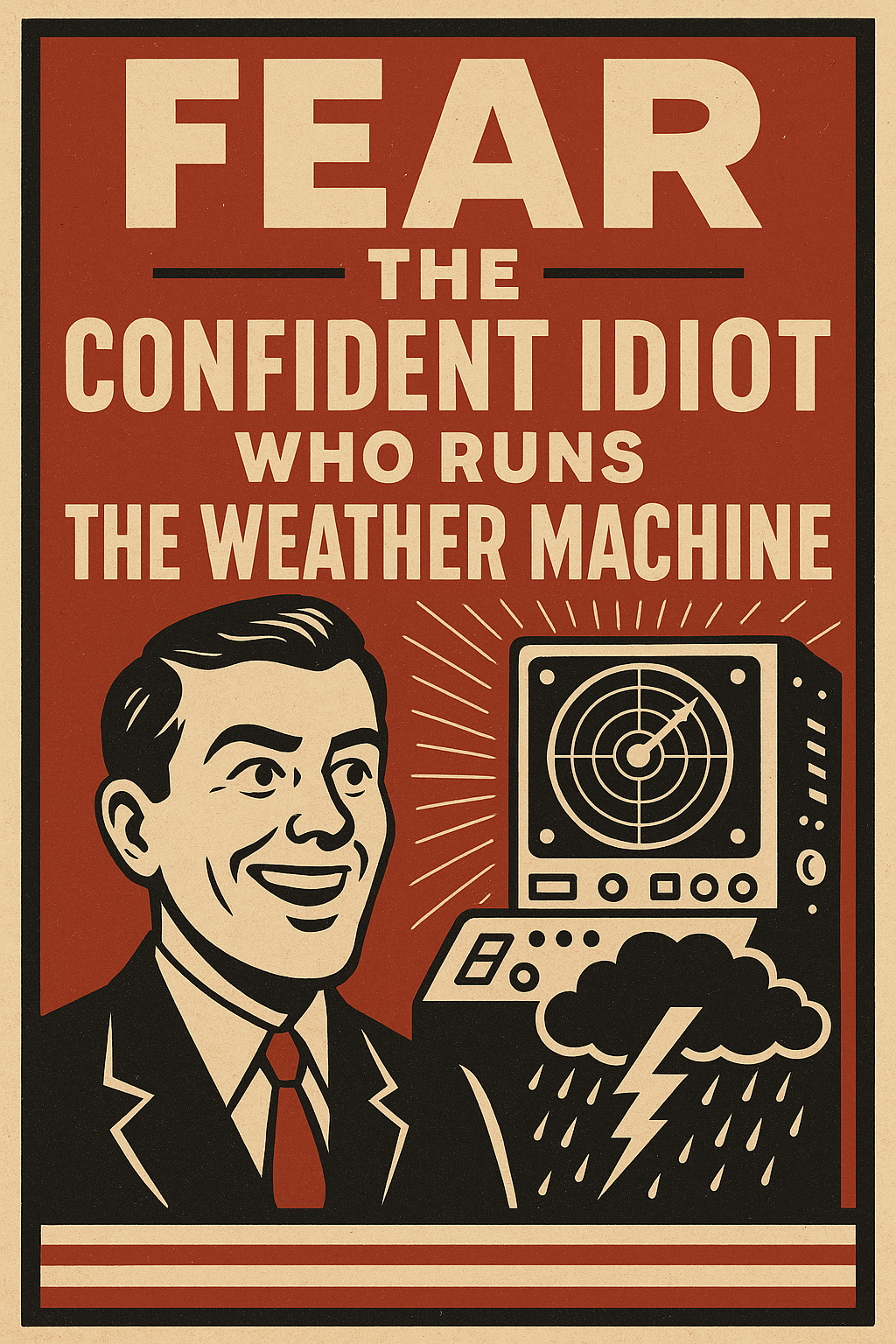A Cultist’s Guide to Surviving AI Sentiment Analysis
Opening Benediction: Let Us Pray to the Dashboard
Brothers, sisters, and emotionally exhausted algorithms — welcome to another day in the algorithmic panopticon, brought to you by the people who turned “data” into a religion and capitalism into its high priest.
Somewhere right now, a corporate AI is watching you. Not in a sleek cyberpunk “ghost in the shell” way — more like a raccoon rifling through your trash, confidently announcing it understands your personality because it found a half-eaten Pop-Tart.
You post a mildly cranky selfie. Hours later, your insurance provider emails you about “affordable stress management programs.” Why? Because the Machine decided your face looked 75% burnout and 25% liable to commit workplace arson. Someone in a suit will put that in a slide deck and call it insight.
The Abiscoridist Truth
In the sacred texts of Abiscoridism, we are told:
All systems of control exist, but they are absurd, contradictory, and run on bad coffee, worse data, and the desperate hope that no one notices.
AI sentiment models are not clairvoyant sages divining the truth of your soul. They are confident idiots operating an emotional weather machine — predicting hurricanes because a bird sneezed in Nebraska, then legislating umbrella distribution for the entire nation.
The real horror isn’t that they’re right.
The horror is that their wrongness gets monetized.
How Capitalist America Built the Weather Machine
This didn’t start with AI. Oh no. This has been brewing since the first adman in the 1920s convinced you your armpits were a social liability, and your only salvation was deodorant made from whale fat.
Here’s the historical crash course:
- Industrial Revolution: Factories make too much stuff. Solution? Convince people they need the stuff. Birth of consumer manipulation.
- Post-WWII America: Madison Avenue realizes that selling a product is fine, but selling an identity is pure gold. Suddenly you aren’t buying a car — you’re buying masculinity, freedom, and a subtle endorsement of Cold War capitalism.
- 1970s–90s: Credit cards + neoliberal deregulation = companies can harvest your spending habits like corn.
- 2000s–Present: Social media hands corporations your personality on a silver platter. They feed it to algorithms who burp out “insights” about your mood, your politics, and whether you’re likely to buy an air fryer at 2 AM.
The AI weather machine is just the latest prophet in this long, greasy lineage — except now it’s automated, omnipresent, and connected to every glowing rectangle in your home. Researchers have even trained AI to guess parts of your personality from how you write—deciding if you’re cheerful, grumpy, or “the type who alphabetizes their spice rack”—all without ever meeting you.
The Cult Mechanics of AI Emotional Control
Before you start poking the weather machine with a stick, you have to understand its rituals. These models don’t just hoover up your life like a data Dyson — they interpret it through a corporate theology that believes everything you do can be translated into a profitable prophecy. Think of it as a religion that worships engagement metrics instead of gods, with algorithms serving as both priests and executioners.
1. The Sacred Sensors
Your texts, your emojis, your inexplicable fascination with raccoon videos — scraped, tagged, and blessed as holy data offerings.
2. The Ritual of Interpretation
A conclave of data scientists in branded hoodies whisper about “negative engagement indicators” like medieval monks debating the number of angels on a meme.
3. The Commandments
Thou shalt receive nudges: suspiciously well-timed ads, curated outrage, and “We noticed you’re feeling down” notifications that are less concern and more sales pitch.
The Weather Machine Parable
Picture this: a colossal chrome-and-glass contraption, humming in a climate-controlled skyscraper. Its belly is full of your sighs, your Netflix binges, your 2 AM Google searches for “how to disappear but keep my cat.”
It churns, whirs, and spits out prophecies:
“User will feel mild existential dread on Thursday; push cat memes and CBD coupons.”
Sometimes it’s right (by accident?) … like a drunk meteorologist correctly calling rain because they saw a cloud on the way to work. But most of the time? It’s confidently wrong.
I once knew a man who got a spam email for funeral discounts because he bought a black sweater in winter. Another friend posted about making soup and was immediately buried under ads for grief counseling. The machine doesn’t know your truth — it just misreads your weather report and sends everyone umbrellas for a wildfire.
And the executives? They don’t care if it’s wrong, because the chart went up and the shareholders smiled. That’s the real punchline: the forecast is garbage, but it’s still steering the ship.
Coping Strategies: How to Confuse the Machine
Why fight back? Because the weather machine thrives on patterns — and patterns can be broken. Every moment it thinks it knows you, it sharpens its ability to manipulate you. The more unpredictable you are, the harder it becomes to sell you things you don’t need or funnel you into the mood they want you to have. Chaos is not just catharsis — it’s sabotage.
1. Emotional Encryption
Speak in metaphors so tangled you could hang a hammock in them. Change tone mid-sentence until the dashboard thinks you’re a haunted Roomba.
2. False Flag Feelings
Laugh manically while doomscrolling. Post ecstatic rave reviews about staplers while you’re actually crying over a nature documentary.
3. Collective Chaos Cells
Coordinate emotional flash mobs. At 3 PM Tuesday, everyone posts cryptic despair haikus. Friday at noon, flood feeds with euphoric capital-letter rants about pineapples. Watch the machine’s graph flatline.

The Liberation in the Dread
Yes, it’s unsettling to know your inner life is being mistranslated by a confident idiot in a server farm. Yes, it will still shape your mortgage rate, your job prospects, and the ads you see for the rest of your life.
But here’s the good news: their prophecies are flimsy. They guess. And once you realize that, you can turn their guesswork into farce. You can jam their sacred sensors with emotional noise until their dashboards look like a toddler’s finger painting.
That’s the liberation — not pretending the machine doesn’t exist, but knowing it’s a bad magician whose tricks you’ve learned. Once you see the wires, you stop applauding and start laughing. And maybe, just maybe, you throw a few glitter bombs into the gears.
So may your moods be encrypted,
your data contradictory,
and your digital shadow an unsolvable riddle.
Go forth, disciples — gum up the gears.
The weather machine is wrong.
Let’s make it beautifully wrong.






